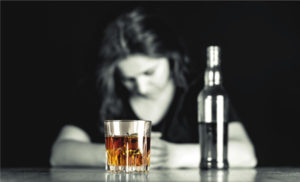No. It is not safe to mix benzodiazepines with alcohol.
Benzodiazepines and Alcohol
Benzodiazepines (often called benzos) are a group of psychiatric drugs classified with tranquilizer-like effects.
They are among the most commonly prescribed depressant drugs in the U.S. They are used to treat many conditions, such as insomnia, anxiety disorders, convulsive disorders, and muscle spasms.
Benzodiazepines include popular medications like alprazolam (Xanax), diazepam (Valium), clonazepam (Klonopin), and lorazepam (Ativan).
Alcohol
Alcohol is an intoxicant with depressant effects.
Recreational alcohol use is extremely popular in the U.S., but so are binge drinking and alcoholism. According to the 2015 National Survey on Drug Use and Health (NSDUH), 15.1 million adults suffered from alcohol use disorder (AUD), which equaled about 6.2 percent of that age group (over 18 years old).
Combined Use
Adults can get prescriptions for benzodiazepines to treat a number of conditions. Most doctors believe benzodiazepines to be safe and effective when used on a short-term or intermittent basis.
Considering how popular recreational drinking is, it is possible — even likely — that someone with a prescription for benzodiazepines may at some point drink alcohol, possibly while benzodiazepines are still in their system.
Mixing benzodiazepines with alcohol is unsafe. To understand the dangers of mixing benzodiazepines with alcohol, it is helpful to understand how each works in the body.
How Alcohol Works

Alcohol is a depressant. As such, it inhibits the function of the central nervous system. The effects of alcohol depend on many factors, including the amount of alcohol consumed and how much time was taken to consume it; the user’s age and body mass; and the amount of food in the stomach at the time of consumption.
General effects of alcohol include slowed reaction times and reflexes, blurred vision, confusion, depression, impaired judgment, memory loss, lower blood pressure, slowed heart rate, and reduced breathing rate.
Alcohol is very addictive, especially to those with underlying mental health issues or stresses, and those who have alcoholism in their family history.
How Benzodiazepines Work
Benzodiazepines are depressants. They work by enhancing the effect of the neurotransmitter gamma-aminobutyric acid (GABA). The result is a slowing of nerve impulses throughout the body and a calming, sedative effect.
Other common effects of benzodiazepines include confusion, vision problems, memory, and cognitive problems, impaired motor coordination, depression, and respiratory depression. At higher doses, benzodiazepines may cause all these effects as well as slowed reflexes, mood swings, and erratic behavior.
After continuous use, users develop a tolerance to benzodiazepines and may need a higher dose to get the effects they are used to, making them prone to abuse.
Dangers of Combining Alcohol and Benzos
As depressants that inhibit the function of the central nervous system, alcohol and benzodiazepines share a number of side effects, including confusion, vision problems, impaired motor skills, and depression.
This is one reason that mixing alcohol and benzodiazepines is so dangerous. Users are essentially “doubling up” on the depressant side effects that can lead to accidents, abysmal judgment, and memory loss.
Both benzodiazepines and alcohol are addictive as well. The fact that users can develop a tolerance to both adds another level of danger. An individual might increase their dosage of both without realizing just how much they’ve actually taken. This can lead to extreme side effects and even fatal overdose.
The most extreme dangers of combining these drugs are respiratory depression and slowed heart rate. An individual can die from an overdose of alcohol alone (alcohol poisoning) due to respiratory arrest. When taken with benzodiazepines, the risk of overdose is much greater.
This is why alcohol and benzodiazepines should never be mixed.
Treating Alcohol Withdrawal with Benzodiazepines

Because of their tranquilizing effects, benzodiazepines have long been used to relieve symptoms of acute alcohol withdrawal, which can include shaking, mood swings, and anxiety.
Most often, doctors in an alcohol detox center prescribe three days of long-acting benzodiazepines to treat alcohol withdrawal. The drugs are administered on a fixed schedule with more medication provided on an “as-needed” basis.
They are only used on a short-term basis and are generally considered a very safe and effective treatment for alcohol withdrawal.
However, a monitored environment (like a detox or treatment center) is key to benzodiazepines being administered for alcohol withdrawal, as professionals can ensure the person is not mixing the benzodiazepine with alcohol, which can be life-threatening. Medical professionals also ensure that the person doesn’t use benzodiazepines for longer than prescribed.
Statistics
According to the 2015 National Survey on Drug Use and Health published by the Drug Abuse Warning Network (DAWN), from 2005 to 2011, just short of 1 million (approximately 943,032) emergency room visits were related to benzodiazepines alone or in combination with opioid painkillers or alcohol and no other substances
During 2005 to 2011, 62 percent of emergency room visits involving benzodiazepines combined with alcohol or opioids resulted in a less serious outcomes (patient treated and released home, or to police custody, or to another care provider), while 38 percent resulted in a more serious outcome (admission to hospital, transfer to another medical facility, or death). Combining benzodiazepines with opioids or alcohol increased the predicted risk of a more serious outcome by 24 to 55 percent compared with benzodiazepines alone.
Overdoses Involving Benzodiazepines with Alcohol
Overdosing on a combination of benzodiazepines and alcohol can result in central nervous system depression. The central nervous system is responsible for most bodily functions, including breathing; it controls the heart and respiratory systems.
The following are the most common symptoms of overdoses involving alcohol and benzodiazepines:
- Slurred speech
- Drowsiness
- Confusion
- Impaired balance or motor control
- Unconsciousness
One of the most dangerous aspects of a benzodiazepine and alcohol overdose is severely slowed breathing. Slowed or stopped breathing results in not enough oxygen reaching the brain, which can result in coma and brain damage.
If an overdose on alcohol and benzodiazepines is suspected, it is critical to call 911 immediately for emergency care.
Treating Overdoses
Most often, overdoses of benzodiazepines and alcohol are treated with professional observation until the drugs are cleared from the body.
Flumazenil, a benzodiazepine receptor antagonist, is sometimes used as an antidote for benzodiazepine overdose.
No Safe Combination
Benzodiazepines are commonly prescribed to treat many conditions safely. Alcohol is commonly used safely and recreationally. However, both of these substances can become addictive and dangerous when abused.
Combining alcohol and benzos is never safe, and it can be deadly.

